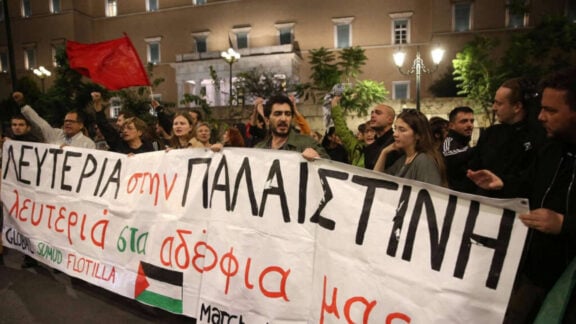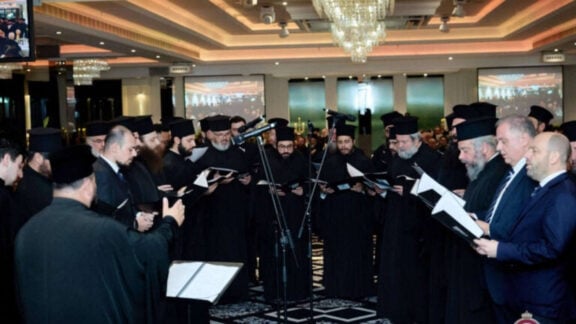In the past decade, trust in public institutions has declined in liberal democracies around the world. The optimism about a bright democratic future based on that held sway after the end of the Cold War in the early 1990s has waned. In some countries, liberal democracy has been all but extinguished as right-wing populists have gained power and re-imposed authoritarian rule.
Some attribute this loss of public confidence to the stresses unleashed by the Global Financial Crisis of 2007-08. The inequalities laid bare by that upheaval did indeed contribute to citizens in many democracies, including Australia, feeling that the system no longer worked for them. The decline in trust, however, preceded both the financial crisis and the sense of threat arising from the terrorist attacks on the United States in 2001 and the subsequent Middle East wars.
The seeds of the decline can be discerned in the circumstances in which the Cold War came to an end. As many have argued, the triumph of the West in the Cold War did not result in the inculcation of a liberal ethos in the political institutions of the former Soviet Union and its allies, despite the expectations of many Western liberals at the time.
This was partly because the unchallenged ascendancy of the US meant that the West no longer used the vigorous assertion of an international order based on respect for human rights as a means of defining the difference between their own systems and those of other countries. After 9/11 and with the so-called ‘war on terror’, unwavering adherence to the defence of human rights even came to be seen as a liability by some Western governments. They wanted to fight terrorists not only with enhanced surveillance and the restriction of liberties, but also with measures that terrorists themselves would use – kidnapping, torture, and arbitrary detention.
Internationally, this hypocrisy fuelled a cynicism that is perhaps the deepest reason for the decline in trust. Ultimately this is a cynicism not only about democratic institutions, but about the Enlightenment ideals that underpin those institutions, and which have animated both liberal democracy and social democracy in the West. In the former communist states of Eastern Europe, this cynicism was exploited by astute and ruthless political operators, as right-wing populists convinced voters that they, and not those perceived to be liberal elites, were better able to advance their interests.
READ MORE: Protecting our Greek inheritance: The fragility of democracy
The reaffirmation of local and national identities, and the hostility to elites, in this kind of populism also resonated with many voters in Western countries who felt that they were excluded from full participation in the economic and social opportunities the elites enjoyed. Right-wing populism drove the rise of ultra-nationalists such as Marine Le Pen in France and the Alternative fur Deutschland in Germany, the Brexit vote in Britain, and the election of Donald Trump as US president in 2016 – as yet there is no indication that Trump’s defeat by Joe Biden will also mean the eclipse of populist nationalism.
Australia has not had to endure the chaos and the virulent manipulation of hatreds, deceits and conspiracy theories that have characterised the Trump administration in the US. Nor does the full-blown authoritarianism that has unravelled democracy in Hungary under Viktor Orban seem likely to gain traction here. We have not been immune, however, to the decline in trust in public institutions that has afflicted other democracies with which we compare ourselves. The decline in trust is measurable: the Democracy 2025 research project, based in Old Parliament House in Canberra, has tracked a fall in public satisfaction with democracy from 78 per cent of survey respondents in 1996, down to 41 per cent in 2018.
It has not been a relentless downward plunge, but it is clear that increasing numbers of Australians feel disconnected from democratic institutions and processes; they do not feel they are full participants in, or beneficiaries of, a system that works for them.
READ MORE: Diaspora voting rights to reinvigorate democracy
That is why the Senate referred this inquiry into Nationhood, National Identity and Democracy to the Legal and Constitutional Affairs References Committee in July 2019. The committee’s work was affected, like so much else in public life, by the COVID-19 pandemic. The decline in trust in government that seemed widespread when our deliberations began seemed to be replaced by a renewed confidence in the power of the Commonwealth and the states to keep Australians safe. Whether this revival of trust will outlast the pandemic is an open question.
Measured against the essential elements of a democratic society, Australia mostly performs well. Our electoral system is highly regarded, and we have a largely independent judiciary, despite recent moves to impose mandatory sentencing for some crimes. The news media, too, are independent despite the concentration of ownership. Although there are disturbing levels of inequality, Australia remains a much more equal society than many of those with which we compare ourselves.
Historically, populism has not only been a right-wing phenomenon. Denigrating all forms of populism ignores the fact that there are grounds for complaint. In Australia, we do not meet the needs of all our citizens or always satisfy the highest standards of human rights.
What is undoubtedly true is that the level of civic engagement and debate in this country is disturbingly low. The inquiry concentrated on the need to rebuild public trust by strengthening democratic institutions, especially parliament. We started from the premise that our parliament and other core democratic institutions must be respected, because through them we can build a higher level of civic engagement. That is the best defence of democracy, and the best means of building a more just and equal society.
Kim Carr is a Labor Senator for Victoria and Chair of the Senate Legal and Constitutional Affairs References Committee. This piece was drawn from the Chair’s Foreword in the ‘Nationhood, National Identity and Democracy’ report.









